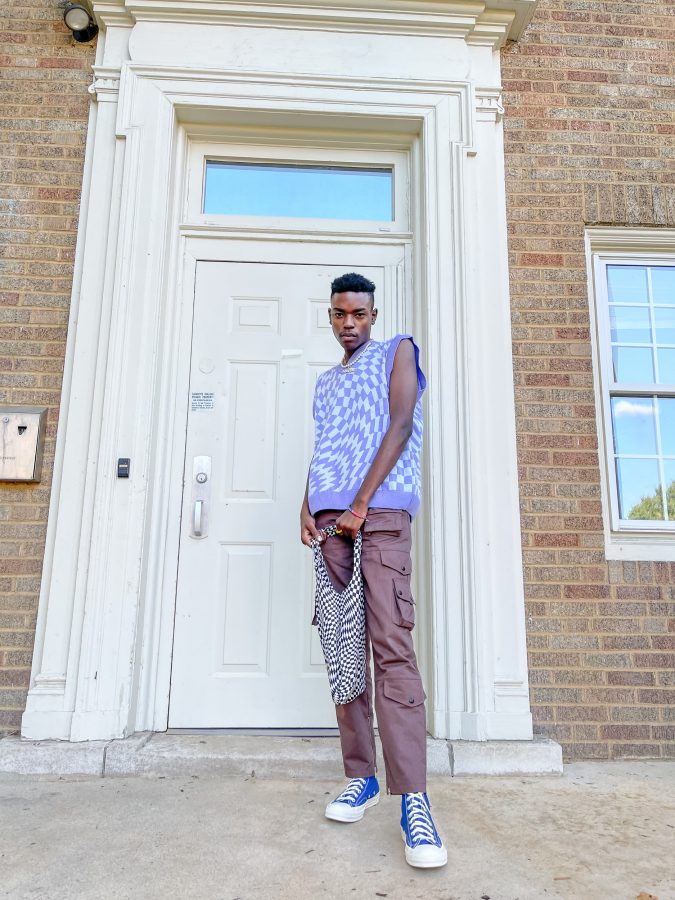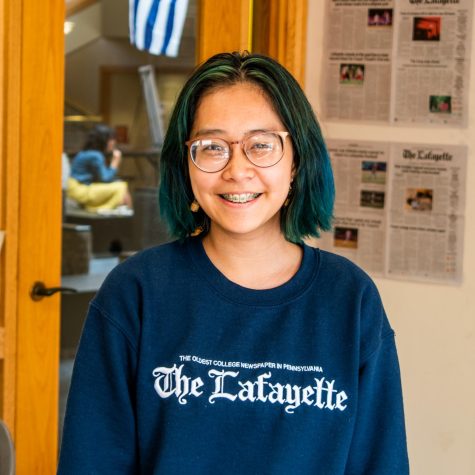Recent calls to abolish Greek life have been accompanied by accusations of racism and bigotry toward the institution. Often excluded from the conversation, however, are the people of color who find Greek life to be a genuinely safe space.
Marcus Alston ‘24, a member of the newest pledge class for Delta Upsilon, explained that he joined because he felt unsafe after an incident occurred in the spring semester.
“After the really horrible incident last semester, the social scene was just very different. I had a group of people on the football team who I was previously friends with, who no longer speak to me, and yet they still dominate nightlife spaces,” Alston said. “And so I wanted to be in a space where I felt comfortable and protected and supported and accepted so that when I do go out, I don’t feel anxious because I’m by myself in a bar full of football guys.”
Alston is not alone in seeking safety within Greek life. A former member of an unnamed sorority’s pledge class who dropped out during the initiation process and said she wished to remain anonymous, explained that she initially rushed because she felt unsafe on campus as a woman of color.
“I felt very uncomfortable walking back alone, and I felt uncomfortable being in public spaces that weren’t just with my friends,” she said. “Had I wanted to even get introduced to any level of party scene in Lafayette or anything beyond my own friend group, I felt like Greek life would be an easy way in because they do have such a wide spread on campus. I felt like I would have a friend no matter where I went.”
For many people of color who rush, pledge and eventually commit, Greek life provides this much-needed safe space. Alston remarked that he feels “very supported and protected” as a member of Delta Upsilon.
The anonymous former pledge said she experienced an “incredible bond of sisterhood” among members of the sorority and felt “genuinely safe” in the house.
Lia Charles ‘22, a member of Pi Beta Phi and the former executive vice president of the Panhellenic Council, echoed this sentiment and credited some of her closest friendships to Greek life.
At the same time, Greek life is an institution that has been accused of being a breeding ground for racism by those calling to abolish the entire system. This causes obvious tensions for people of color within Greek life.
Sororities rank those rushing on a scaled system from one to 10 in order to quantify how compatible that person is with the sorority. The former pledge shared a story in which a dark-skinned girl rushing at Lafayette did not get called back for preference night, the last night for callbacks, solely because of the color of her skin. She recalled hearing that the national chapter had come down to Lafayette to emphasize that they did not want someone who looked like her in their sorority.
“When you see all these pledge class pictures, you are seeing something that was very explicitly picked based on appearance, and that made me wildly uncomfortable,” she said. “I thought that I was in a white space because I was attending a predominantly white institution and being a part of a white cultural organization. No, these spaces are being very explicit in their racism, even in their recruitment process, which they tend not to share.”
The former pledge dropped out of Greek life because she was unable to join an institution that she called “explicitly racist” without “feeling some level of intense guilt.” However, the issue is more complicated than a choice between dropping and staying. Many people of color who are aware of racism in Greek life stay in the organization for a number of reasons, whether this is a desire to make the space more inclusive from within, a deep connection with those in the organization or just an acknowledgment that, as Charles stated, the issue is not as “black and white” as it seems at first glance.
“I think that people reject nuance and I think that being a person of color in Greek life is very nuanced,” Charles said. “Unless you talk to the individual [people in Greek life], you won’t understand where they’re coming from.”
Although the former pledge dropped out of Greek life, she expressed ambivalent feelings towards the movement to abolish Greek life because of its function as a safe space for many participating people of color.
“The abolish Greek life movement has been so difficult for me because obviously, I agree with its principles, I agree with its message. But I also do know that by taking that system away, for a lot of sisters of color that are in that system, you are ripping away their support network,” she said. “At that point, even though we are ultimately trying to help, it immediately comes with the cost of a lot of hurt.”
“Some of the girls that I met during recruitment disagreed [with me] and said that they wanted to keep Greek life because they needed that support network because they feel genuinely safe there,” she continued. “I would never feel comfortable enough to say no and disagree with them and override their opinions.”
Alston also expressed hesitation with the abolish Greek life movement, mostly because of how deeply ingrained the institution is.
“I don’t disagree that this system is flawed and very inherently racist. However, my pushback to that would be: in the situation where we are now, Greek life isn’t going anywhere in the next few years, just on a national basis. Also, the Greek life endowment at the school is so large that [Lafayette] isn’t willing to give it up,” Alston explained. “As a person who wants change, because I know it’s not going anywhere, I might as well do something with what I have, in terms of fixing what I can while it is here.”
Reform within Greek life to make it more inclusive looks different for each individual. Alston wants to create a scholarship pooling funds from alumni for low-income students who want to join Greek life but can’t afford dues, hoping that this will allow for a more diverse roster within Greek life organizations at Lafayette. He also wants Greek life organizations to attend more educational workshops by organizations such as Kaleidoscope and Pards Against Sexual Assault to foster a more inclusive culture.
From an external standpoint, one way to address the problem of racism and bigotry within Greek life is to create more safe social spaces on campus outside of the organizations so students do not feel pressured to join them.
“In an ideal system, Greek life wouldn’t exist for me,” the former pledge said. “I’ve talked to a lot of girls of color, and a lot of the reasons why they do join Greek life is to feel safe. We shouldn’t be at a campus where you need to go through this entire long and drawn-out initiation process to feel safe.”
“Ultimately, everyone needs to feel unpressured in choosing what their social life looks like,” Charles said.
The question of racism in Greek life is more than just a yes or no question of whether to abolish it. Although the former pledge agrees with criticisms that Greek life is inherently racist, and even dropped out of the process for that reason, she still urges people discussing the issue to treat those involved with respect.
“I personally see a lot of people in Greek life to some extent as victims, or people…that are desperate to find friends…It is as simple as that. It is the basic desire for human connection that drove people to rush,” the former pledge said. “The idea of harassing, berating and disrespecting others just for that made me feel very genuinely upset.”























































































































